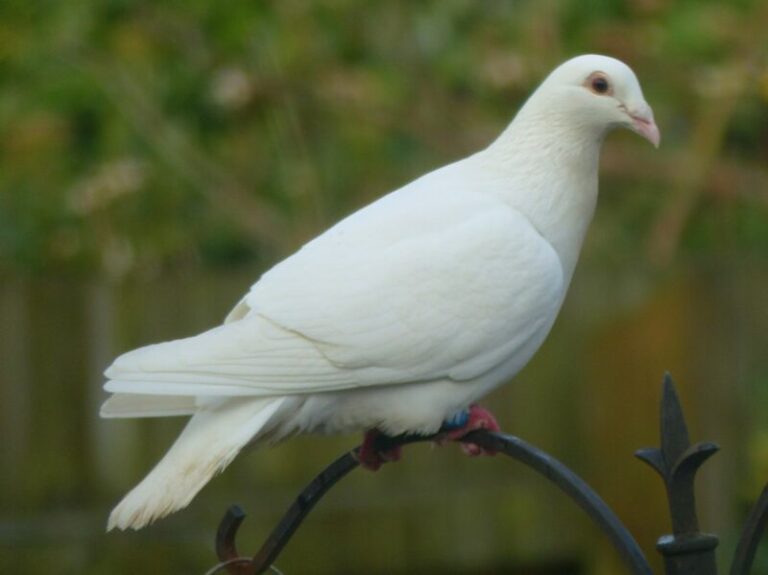15 Flowers That Symbolize Peace
Introduction
Have you ever stopped to admire the serene beauty of a flower and wondered what deeper meanings it might hold?
Flowers are not just a feast for the eyes; they carry rich symbolism that has been cherished through ages and across cultures.
In this journey, we’ll explore the enchanting world of flowers that symbolize peace, delving into their historical significance, cultural relevance, and the tranquility they bring to our lives.
Short Answer
When it comes to embodying peace, certain flowers stand out with their unique symbolism. These blooms, often associated with calmness, tranquility, and harmony, have been used throughout history to convey messages of peace and to foster an atmosphere of serenity. They serve as gentle reminders of the importance of peace in our lives.
The Dove of the Floral World: White Lily
The white lily, often referred to as the ‘dove of the floral world’, symbolizes purity and peace.
These elegant flowers are a common feature in religious ceremonies and are associated with the Virgin Mary in Christian iconography, symbolizing her role as the Queen of Peace.
The serene beauty of white lilies makes them a popular choice for occasions that call for reflection and tranquility.
Olive Branches in Bloom: Olive Flowers
Olive flowers, though less conspicuous than their famous fruit, carry a profound symbolism of peace.
Historically, olive branches were used as a peace offering in ancient times, and the flowers continue this legacy. They represent reconciliation and the end of conflict, often used in diplomatic contexts as a sign of goodwill and harmony.
The Tranquil Lotus: Symbol of Serenity
In various Eastern cultures, the lotus flower is a powerful symbol of peace, purity, and enlightenment.
Rising above murky waters, it represents the ability to maintain calm and purity amidst chaos, resonating with those seeking inner peace. The lotus is widely revered in Hinduism and Buddhism for its serene demeanor and graceful beauty.
The Gentle Lavender: Aromatic Peace
Lavender, with its soothing scent and delicate appearance, symbolizes calmness and peace. It’s known for its therapeutic properties, often used in aromatherapy to reduce stress and promote relaxation. Lavender’s presence in gardens and homes brings a sense of tranquility and harmony, making it a natural ambassador of peace.
Sunflower: A Beacon of Hope
Bright and cheerful sunflowers symbolize adoration, loyalty, and longevity, but they also represent peace. Their radiant appearance and tendency to turn towards the sun symbolize optimism and the pursuit of light and positivity, offering a message of hope and peaceful coexistence.
The Subtle Daisy: Innocence and Peace
Daisies, with their simple yet charming appearance, symbolize innocence, purity, and peace. They evoke a sense of childlike wonder and simplicity, reminding us of the peaceful aspects of life. Their widespread presence in meadows and gardens makes them a symbol of natural, effortless peace.
The Bluebell’s Silent Chime
Bluebells, with their delicate and bell-shaped flowers, symbolize constancy, humility, and gratitude, but also convey a message of peace. They often grow in serene woods and meadows, bringing a sense of tranquility and harmony to their surroundings. The bluebell’s gentle appearance and subtle color palette evoke a feeling of peacefulness.
The Harmonious Hydrangea
Hydrangeas, with their large, bountiful blooms, symbolize heartfelt emotions and gratitude. They also represent harmony and peace due to their densely clustered flowers, which can be seen as a metaphor for unity and togetherness. Their presence in gardens and bouquets adds a touch of serenity and peaceful coexistence.
Related Questions
What is the Best Flower to Give for Peace?
When choosing a flower to symbolize peace, consider the context and the message you wish to convey. White lilies and olive flowers are traditional choices, representing purity and reconciliation. For a more personal touch, lavender or a lotus might be more fitting, symbolizing inner peace and serenity.
Can Flowers Really Promote Peace?
While flowers themselves may not bring about peace directly, they certainly play a symbolic role in promoting the idea of peace. Their beauty, fragrance, and symbolism can evoke feelings of tranquility and harmony, serving as reminders of the importance of peace in our lives and relationships.
How Do Different Cultures View Peaceful Flowers?
Different cultures have unique interpretations of flowers and their symbolism. For instance, the lotus is highly revered in Eastern cultures as a symbol of peace and purity, while in Western contexts, white lilies and olive branches are more commonly associated with peace.
Why Are White Flowers Often Associated with Peace?
White flowers, such as lilies, are often associated with peace due to their pure and unblemished appearance. White is a color that represents purity, innocence, and tranquility, making white flowers a natural choice for symbolizing peace.
Can Planting Peaceful Flowers Make a Difference?
Planting flowers that symbolize peace can create a serene environment, promoting a sense of tranquility and harmony. Gardens filled with peaceful flowers can serve as a refuge, offering a space for reflection, relaxation, and a connection with nature.
Scenarios Involving Peaceful Flowers
| Scenario | Description |
| Garden of Tranquility | A garden designed with peaceful flowers like lavender and lotus, creating a serene space for meditation. |
| Diplomatic Gift | Olive branches or white lilies given as a gift in diplomatic contexts to symbolize a desire for peace. |
| Memorial Service | Using white lilies at a memorial service to convey a message of peace and hope. |
| Stress Relief | Planting lavender in a home garden or using it in aromatherapy for its calming properties. |
| Cultural Festivals | Incorporating the lotus in cultural celebrations as a symbol of peace and enlightenment. |
| Wedding Bouquets | Including daisies or hydrangeas in wedding bouquets to symbolize a harmonious and peaceful union. |
| Artistic Inspiration | Artists using the serene imagery of peaceful flowers in their work to convey tranquility. |
| Community Gardens | Creating community gardens with flowers like sunflowers and bluebells to foster a sense of togetherness and peace. |
Detailed Descriptions
- Garden of Tranquility: Imagine a garden where every turn reveals a new peaceful flower, from the calming scent of lavender to the pure blossoms of lotuses. This space is a haven for those seeking a moment of peace, a place to meditate or simply enjoy the serene beauty of nature.
- Diplomatic Gift: In diplomatic settings, the gift of olive branches or white lilies can be a powerful symbol. These flowers represent a sincere wish for peace and a desire to resolve conflicts, bridging gaps between differing perspectives.
- Memorial Service: White lilies are often chosen for memorial services as a symbol of peace and hope. They offer a comforting presence, reminding mourners of the peace that the departed now enjoys and the hope for peace we cherish in their memory.
- Stress Relief: Lavender, known for its calming properties, is a perfect choice for those looking to create a peaceful home environment. Whether grown in the garden or used in aromatherapy, lavender’s soothing scent helps to reduce stress and promote relaxation.
- Cultural Festivals: In many Eastern cultures, the lotus flower is a central symbol in festivals and celebrations, embodying peace, purity, and spiritual enlightenment. Its presence adds a layer of deeper meaning and tranquility to these events.
- Wedding Bouquets: Daisies and hydrangeas in wedding bouquets symbolize a harmonious and peaceful union. These flowers add a touch of elegance and serenity to the occasion, reflecting the couple’s hopes for a peaceful and loving future together.
- Artistic Inspiration: The imagery of peaceful flowers like sunflowers and bluebells often inspires artists. These flowers represent tranquility and harmony, themes that resonate deeply in various forms of artistic expression.
- Community Gardens: Community gardens featuring flowers such as sunflowers and bluebells can foster a sense of togetherness and peace. These spaces bring people together, encouraging community interaction and a shared appreciation for nature’s tranquility.
More Symbols of Peace
The Gentle Camellia
- Symbol of Adoration: Camellias, with their delicate petals and lush foliage, symbolize adoration and deep affection, fostering a peaceful and loving atmosphere.
- Representation of Longevity: These flowers are often associated with the longevity of life and relationships, embodying the peace that comes with enduring bonds.
- Cultural Significance: In many Eastern cultures, camellias are revered for their elegant beauty and are used in various ceremonies as symbols of peace and prosperity.
The Humble Forget-Me-Not
- Symbol of True Love: Forget-me-nots, with their tiny yet vibrant blue flowers, are a symbol of true love and remembrance, representing the peace found in cherished memories.
- Connection to Legends: These flowers are often linked to legends and folklore, symbolizing faithful love and a peaceful reminder of those we hold dear.
- Wildflower Charm: As wildflowers, they bring a sense of peace and simplicity to natural landscapes, reminding us of the beauty in the world around us.
The Regal Iris
- Symbol of Wisdom and Hope: The iris, with its striking appearance, symbolizes wisdom, hope, and valor, conveying a sense of peace through understanding and resilience.
- Variety of Colors: Irises come in a range of colors, each with its own symbolism, but all sharing a common thread of peace and positivity.
- Historical Significance: These flowers have been revered since ancient times, with their images found in royal emblems and artworks, symbolizing peace and royalty.
Conclusion
In the realm of flowers, each bloom carries its own unique story and symbolism, with many embodying the essence of peace.
From the serene white lilies to the hopeful sunflowers, these natural beauties offer us a glimpse into the diverse ways in which peace can be expressed and celebrated.
Whether used in cultural ceremonies, given as gifts, or simply enjoyed in a garden, these flowers remind us of the importance of tranquility, harmony, and the enduring pursuit of peace in our lives.







